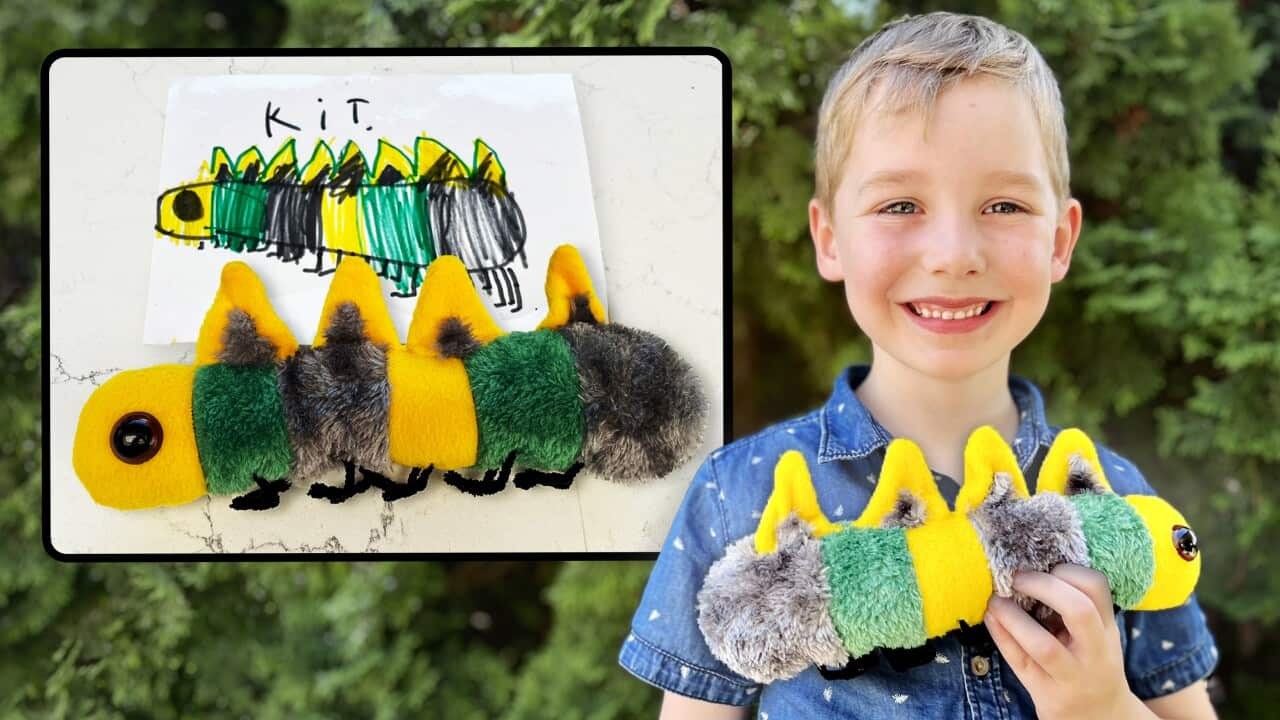Nestled in a room in an aged care facility in Sydney's south sits a group of babies and toddlers, playing with older residents.
They aren't family, but the young and old are creating lifelong memories together.
It's part of an innovative new playgroup launched by Playgroup NSW, called Timeless Play, which encourages parents to bring their babies and toddlers to connect with older residents at aged care facilities. Intergenerational playgroups have been around for a decade, but this one launched last month.
At the Georges Estate Heath and Aged Care Residence, the room is buzzing with newfound friends shaking Easter egg toys, crafting paper bunny hats and singing fun children's songs.

Playgroup NSW's initiative called 'Timeless Play' takes place at six locations across the state. Source: SBS News / Rayane Tamer
"Just seeing their eyes light up every time I come up here, and they're like, 'How's Charlie, can I have a cuddle?'"
Their eyes light up every time I come up here.Cindy Chick, parent
"I want [my kids] to understand that you need to include [older people] in the community," she says.
"Because one day, you will get old and it's not right for the community just to say, 'Oh, thanks for your contribution but it's time for us to go to our home and that's about it'."
The 2019 statistics from the Australian Institute of Health and Welfare are stark: 87 per cent of aged care residents live with at least one mental or behavioural condition, and nearly 50 per cent live with depression.

Parents and aged care residents play together, facilitated by two supervisors, for two hours every fortnight. Source: SBS News / Rayane Tamer
He says these programs "work wonders" by offering seniors a chance for engagement, while also giving children "a chance for enduring friendships".
"What we're learning, time and time again, is that when you're older, you have such a need to pass all the lessons that you've learned, the wisdom, to younger people," Professor Bhar says.
Ms Chick migrated to Australia in 2002 from Hong Kong and hasn't seen her parents since the COVID-19 pandemic began. Her five-month-old son, Charlie, is yet to meet his maternal grandparents.
For the Sydney mum, having conversations with older residents is rewarding as she misses face-to-face interaction with her own parents.

Cindy Chick and her five-month-old son, Charlie. Source: SBS News / Rayane Tamer
Nadene Lee, CEO of Playgroup NSW, says there's anecdotal evidence of the benefits of such playgroups.

Babies from birth to children of school-age are welcome. Source: SBS News / Rayane Tamer
“The more of these playgroups we can offer, the greater the impact for individuals and community as a whole.”
Carmel Bollard, 89, moved into Georges Estate last year with her husband. She says life was "isolating" during the COVID-19 pandemic, so programs like Timeless Play have brought life to what were previously lonely days.
It's been over a decade since she took care of a baby as a grandparent, and now gives the mums some advice about motherhood.

Carmel Bollard, 89, says playing with children and chatting to parents has been a positive experience. Source: SBS News / Rayane Tamer
For 85-year-old Bill Barker, days are filled to the brim with activities, and that includes making some younger, new friends who visit for playgroup.
Now, he likes to joke that he feels like he's "26 and a quarter".
The estate manager, Kris Healy says she's noticed a difference first-hand from the very first playgroup.

Bill Barker, 88, spends every fortnight playing at his aged care facility with babies, like five-month-old Charlie. Source: SBS News / Rayane Tamer
Professor Bhar says studies have yielded mixed results about the tangible benefits and urges more rigorous research to be done on the topic.
He says the anecdotal evidence is clear and consistent — the playgroups are beneficial and should be to be "part and parcel" of aged care facility programs across the country.
"Just like you have bingo groups, why not have intergenerational programs?"
Readers seeking support with mental health can contact Beyond Blue on 1300 22 4636. More information is available at .


